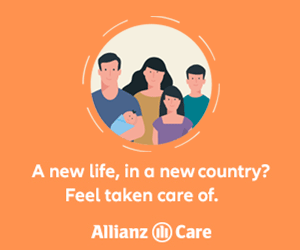Selfoss, Iceland
Last updated on Jul 10, 2023
Summary: Expats, digital nomads and retirees discuss what it is like to live in Selfoss, Iceland: Cost of living, Finding a home, Meeting People and more.
What do I need to know before moving to Selfoss?
When we asked people what advice they would give someone preparing to move to Selfoss, they said:
"Selfoss is the largest town in South Iceland, located on the banks of the Ölfusá river. It is a significant hub of transportation, services, and education in the region. The town is known for its peaceful and quiet environment, making it an ideal place for those who want to escape the hustle and bustle of city life. Before moving to Selfoss, expats should know that the cost of living is relatively high, similar to other parts of Iceland. This includes the cost of housing, groceries, and other daily necessities. However, the quality of life is also high, with excellent healthcare and education systems. The weather in Selfoss can be quite unpredictable, with cold winters and mild summers. It's essential to invest in good quality, warm clothing, especially for the winter months. The town also experiences long hours of darkness in winter and long daylight hours in summer, which can take some getting used to. The official language in Selfoss, like the rest of Iceland, is Icelandic. While most locals speak English, it can be beneficial to learn some basic Icelandic phrases to help with daily life and integration into the community. Public transportation in Selfoss is limited, so having a car can be beneficial. However, the town is small enough to walk or bike around easily. The job market in Selfoss is relatively small, with many locals working in agriculture, fishing, or the service industry. It's advisable to secure a job before moving, as it can be challenging to find employment. Icelandic people are known for their friendliness and hospitality, and Selfoss is no exception. However, they also value their privacy and personal space, so it's important to respect this when interacting with locals. Selfoss has a vibrant cultural scene, with numerous festivals and events taking place throughout the year. The town is also close to some of Iceland's most beautiful natural attractions, including geysers, waterfalls, and hot springs. Healthcare in Iceland is of a high standard, and this extends to Selfoss. However, it's important to ensure you have adequate health insurance to cover any medical costs. Finally, it's worth noting that Iceland, including Selfoss, is one of the safest countries in the world, with very low crime rates. However, it's still important to take basic safety precautions, just like you would anywhere else," remarked one expat who made the move to Selfoss.
What is a typical expat home or apartment like in Selfoss?
Please login to continue reading this article.
Not a member? Join Today (it's free).
About the Author
 Joshua Wood, LPC joined Expat Exchange in 2000 and serves as one of its Co-Presidents. He is also one of the Founders of Digital Nomad Exchange. Prior to Expat Exchange, Joshua worked for NBC Cable (MSNBC and CNBC
Primetime). Joshua has a BA from Syracuse and a Master's in Clinical and Counseling Psychology from Fairleigh Dickinson University. Mr. Wood is also a licensed counselor and psychotherapist.
Joshua Wood, LPC joined Expat Exchange in 2000 and serves as one of its Co-Presidents. He is also one of the Founders of Digital Nomad Exchange. Prior to Expat Exchange, Joshua worked for NBC Cable (MSNBC and CNBC
Primetime). Joshua has a BA from Syracuse and a Master's in Clinical and Counseling Psychology from Fairleigh Dickinson University. Mr. Wood is also a licensed counselor and psychotherapist.
Some of Joshua's articles include Pros and Cons of Living in Portugal, 10 Best Places to Live in Ireland and Pros and Cons of Living in Uruguay. Connect with Joshua on LinkedIn.

 Selfoss, Iceland
Selfoss, Iceland

